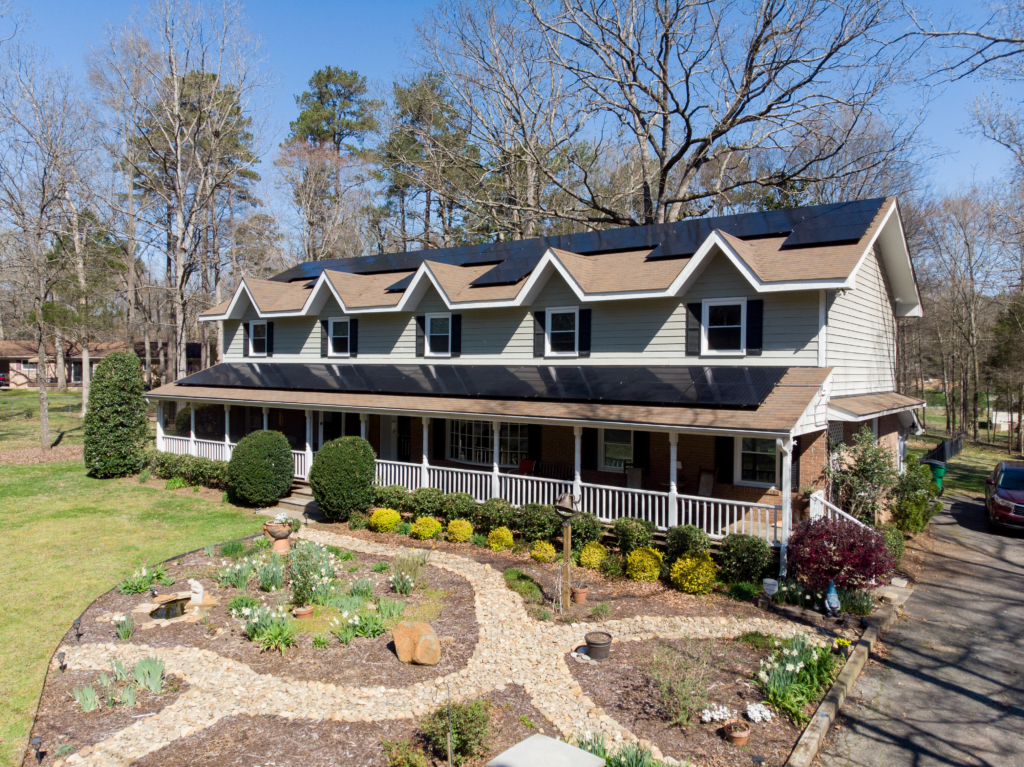Keegan’s Solar Story
 Keegan’s Solar Story with Renu
Keegan’s Solar Story with Renu
Keegan’s solar story is just one of our favorites! Keegan and Ali are no strangers to advanced engineering (they work at Siemens) and since they bought their home in Fort Mill, SC, they were open to going solar. Federal and state tax credits made it even more affordable than they has foreseen.
In spite of the warnings well-meaning naysayers, including friends and family who questioned the couple’s choice to have solar equipment placed on their roof, they find they’re having the last laugh, with small utility bills and an investment that’s looking very wise. They’ve even hosted a solar party at their home to show their neighbors and coworkers that solar works as advertised and promises to be a durable, sustainable addition to their home sweet home.
Learn more about solar electric systems that use solar panels to provide energy for your whole home.

Frequently Asked Questions About Solar for Your Home:
How exactly does going solar and a solar system itself work?
How many solar panels do I need for my home?
Roof-size/available space: When we look at the size of your roof and the space available, we gather data that tell us the maximum number of solar panels your home or site can hold and we even consider shading. We use a software “Suneye” which takes a 360 picture of your roof and we use this photo to determine if your home is a good candidate for solar.
Energy Usage: When we determine energy usage we look at your past electrical bills from over the course of a year to make sure your system isn’t too big or too small.
Your Budget: We take your budget seriously and most importantly, we want you to be satisfied with our services. We take your feedback on how much you want to spend so that we can size your system appropriately.
What is solar net-metering?
Does Duke Energy offer net-metering?
Curious about the cost of a home solar system?
Ready to Own Your Own Energy?
Speak to Us Today!
